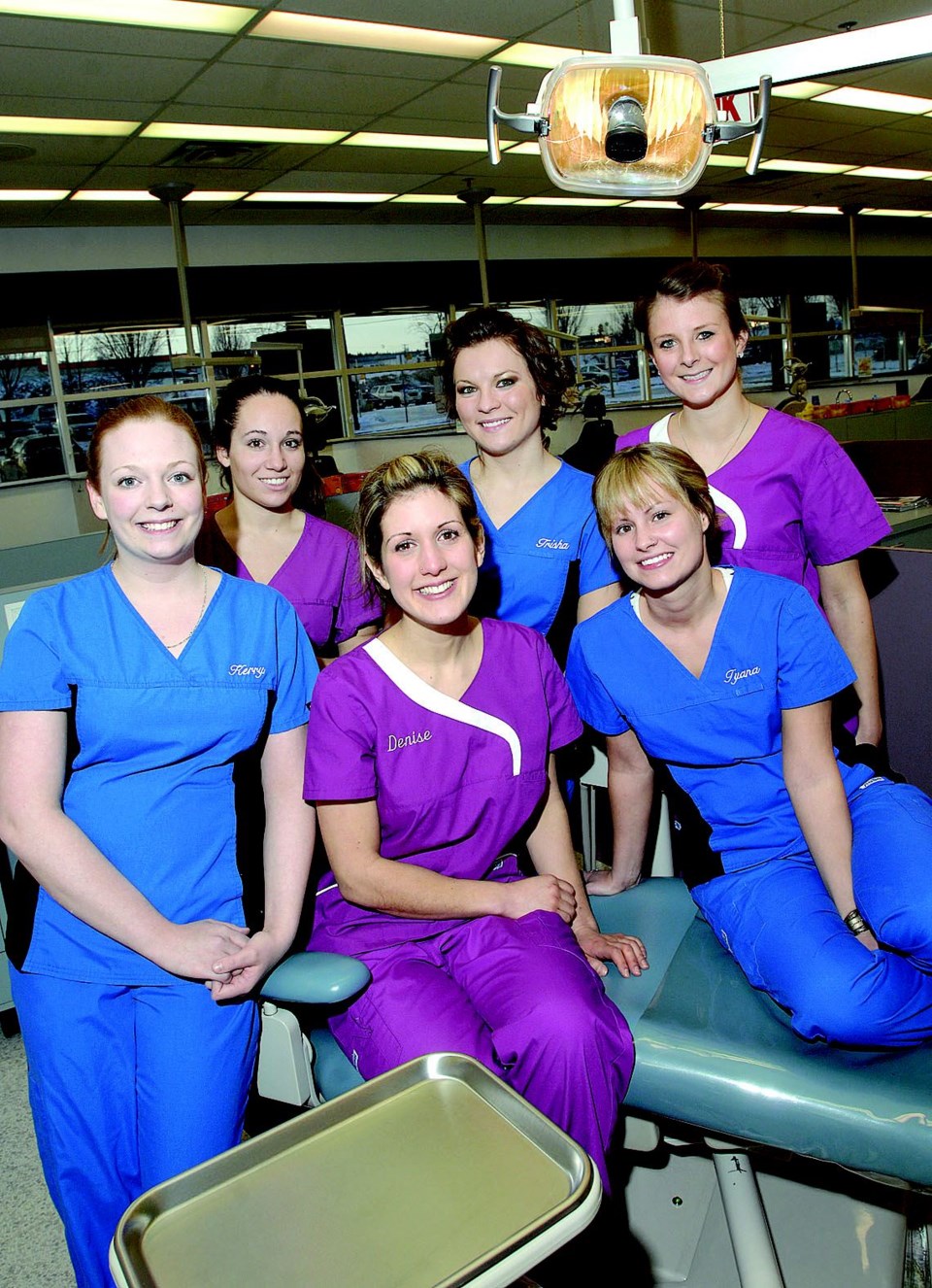Six College of New Caledonia dental hygiene students have been brushing up on their Swahili language skills in anticipation of a teeth-bearing mission to Tanzania.
Next Friday they begin a two-week adventure to offer preventative dental health care to Tanzanians in a hospital in Dar es Salaam, a city of about 2.8 million located on the east-central coast of Africa, just seven degrees south of the equator.
"We had a Skype call a couple of weeks ago and it was minus 35 C here with a windchill and plus 35 C there with humidity, so it's going to be a real environmental change there," said CNC dental hygiene instructor Heather Mohr.
"They don't have the care there and they don't have the facilities we have here. There's really not a lot of preventive care and we're hoping to bring that part of it into the situation. We can provide them some educational products and information so they can be healthier."
Using supplies donated by dental health professionals in Prince George, the CNC students will provide fluoride treatments, oral hygiene instructions, temporary fillings and will help dentists with extractions and filling cavities.
"The students will be working in circumstances that are less favourable than they are used to, so they will become more adaptive," said Mohr.
"This is a pilot project and I'm hoping we'll be able to continue these trips overseas. If all goes well this time I'm looking forward to getting something set up for health sciences students at the college."
Under the leadership of Mohr and Prince George dentist Richard Wilczek, the Prince George contingent includes three first-year dental hygiene students, Megan Ball, Denise Densmore, Kelsey Raimundo, and three second-year students, Kerry Smith, Tyana Huetzelmann and Trisha Pichoch.
"We're working with two orphanages and a hospital," said Ball. "The wealthy class has access to dental care, but we'll be seeing children who have never seen a dentist and the people who are in the hospital are there because they're in so much pain."
To get beyond the language barrier the students plan to use pictures, games and songs and crafts to help the people learn how to prevent tooth decay and gum diseases.
"It will be a different clientele than we're used to working on," said Pichoch. "We're trying to reach out to a population who may not know what we can offer."
While in Tanzania, the CNC group will be staying with two host families. During their time away from the hospital they plan to tour spice markets, learn about native cuisine, take African dance lessons, snorkel in the Indian Ocean and swim with dolphins. A weekend in Zanzibar is also on itinerary.
The visit to Tanzania requires immunizations for yellow fever, typhoid, hepatitis, polio and pills to prevent malaria. "The government website said Tanzania is up at the highest level as far as being safe is concerned," said Mohr. "You do have to follow protocols and uses common sense. The college wouldn't allow the students to go unless it was safe enough to go."
The area is still recovering from heavy flooding on Dec. 20, when the heaviest rains in 57 years left 13 people dead and nearly 5,000 homeless.
Through fundraisers, bursaries and out of their own pockets, the students have raised $5,500 each to cover the travel costs. The trip was arranged through Projects Abroad.
Second-year students are already seeing patients at the CNC dental clinic, while the first-year students begin that work in March.
"This has never been done before," said Densmore. "If I had gone to another school, I don't think I would've had the opportunity to travel overseas like this."


